5 Magnesium Rich Foods You Can Have on Keto

You’ll probably be pleased to hear that dark chocolate isn’t just keto-friendly; it also brings health benefits and minerals like magnesium. Magnesium is an important mineral involved in hundreds of chemical reactions in your body, but many people aren’t getting enough magnesium. Magnesium deficiency can lead to symptoms like muscle cramps, abnormal heart rate and blood pressure, nausea, fatigue, bone health problems, and many other serious consequences. You can easily reach your daily needs (without a magnesium supplement) by simply adding magnesium rich foods into your diet. Let’s discuss five keto-friendly foods that are good sources of magnesium [1].
1. Dark Chocolate
Dark chocolate isn’t so devilish, and it’s especially rich in magnesium with 64mg in a 1-ounce (28-gram) serving, which is 16% of the RDI. Dark chocolate also contains iron, manganese, copper, and prebiotic fiber that feeds your healthy gut bacteria [2] [3].
Dark chocolate is packed with beneficial antioxidants that help protect your cells from harmful free radicals that can lead to disease. Dark chocolate is particularly beneficial for heart health due to the flavanols — powerful antioxidant compounds that might improve cholesterol [4] [5] [6]. Choose a dark chocolate product that contains at least 70% cocoa solids or higher and make sure there’s no added sugar and that it’s keto-friendly.
Try these delicious chocolatey keto recipes:



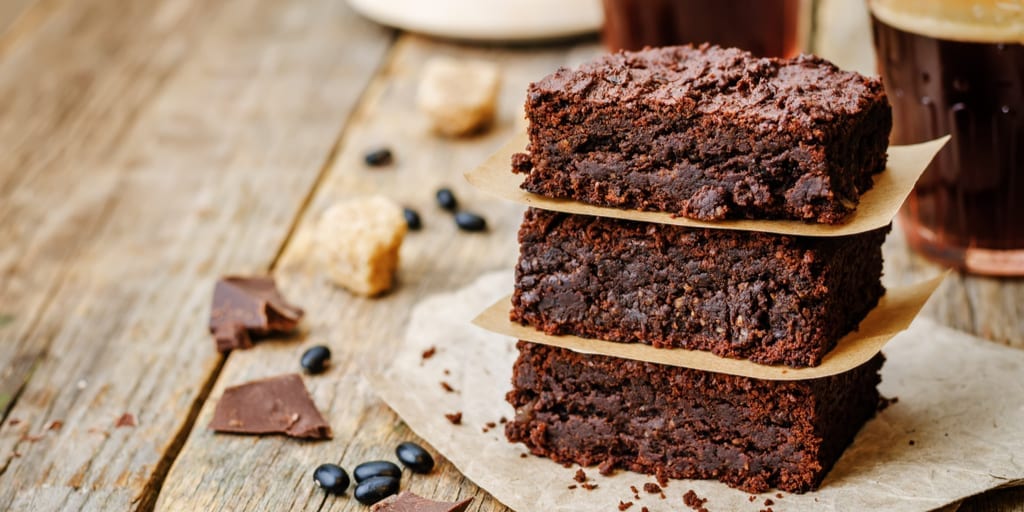
2. Avocado!
The humble avocado is renowned for its health benefits and creamy, fatty flavor and texture. One medium avocado provides 58mg of magnesium, which is 15% of the RDI. Avocado is an exceptionally nutritious fruit that provides plenty of fiber and little to no digestible carbohydrates [7].
Studies show consuming avocados can improve cholesterol levels, increase feelings of satiety following meals, and reduce inflammation [8] [9] [10]. You could make the famous and irresistible guacamole or try avocado in some of these keto dishes:
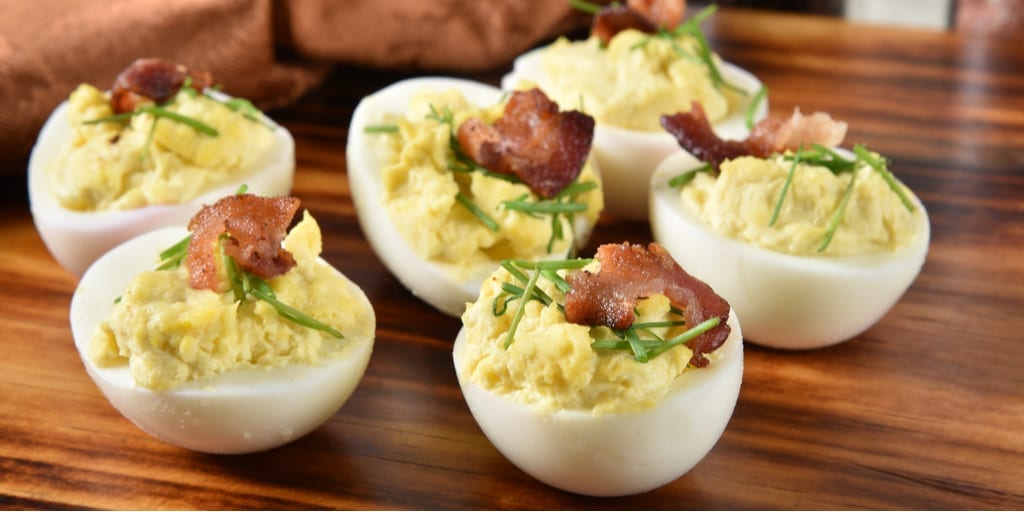
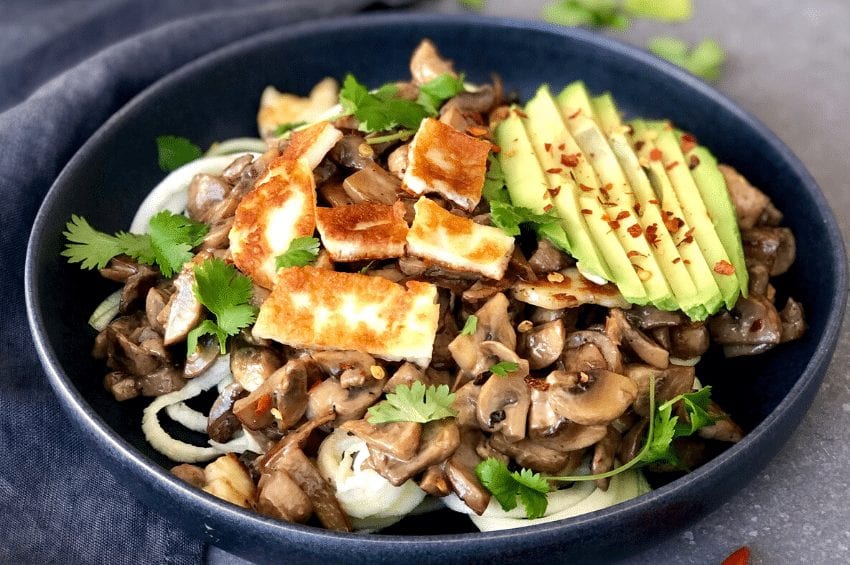
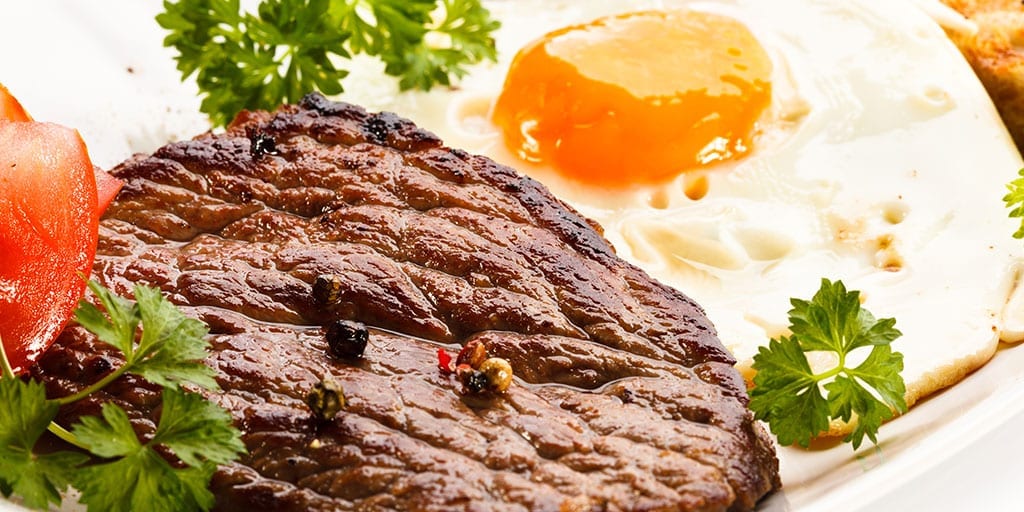


3. Nuts and Seeds
Nuts and seeds one of the most common magnesium rich foods consumed on keto. Nuts are tasty, crunchy, and nutritious. Certain nuts like almonds and Brazil nuts are particularly high in magnesium. For example, a 1-ounce (28-gram) serving of almonds contains 75mg of magnesium or 19% of the RDI [11].
Most nuts are a great source of monounsaturated fat and fiber, and they’ve been shown to improve cholesterol and blood sugar levels in diabetics. Nuts are also anti-inflammatory and advantageous for heart health. Nuts can help reduce your appetite when eaten as snacks [12] [13] [14] [15].
Indulge in these nutty keto recipes:
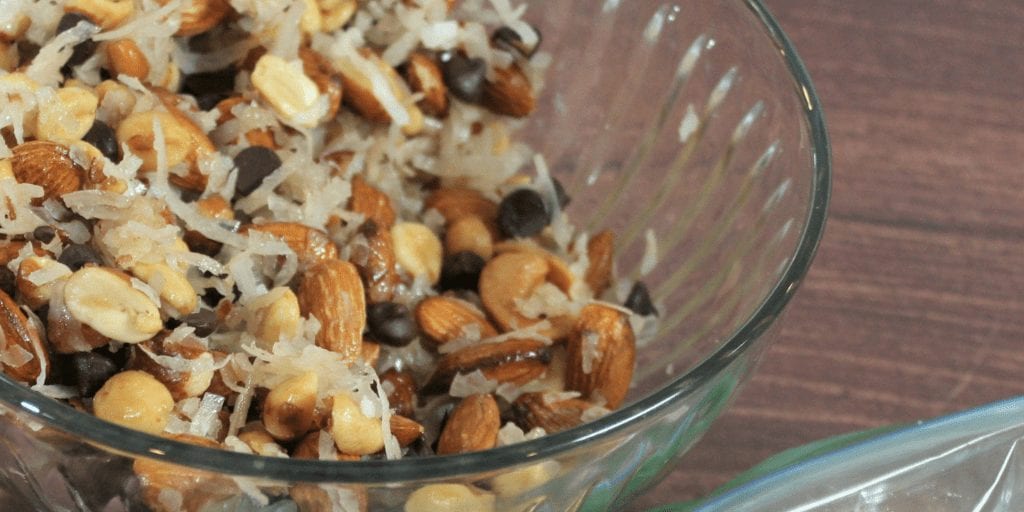
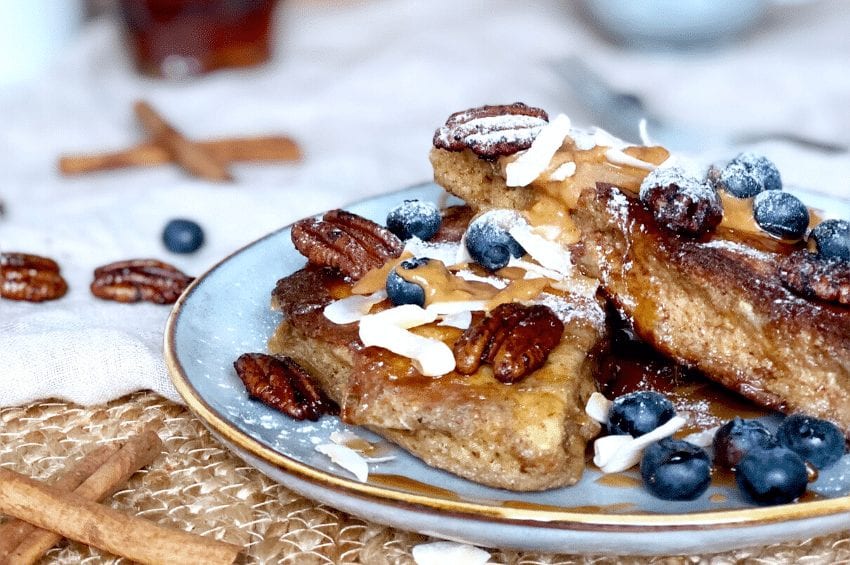

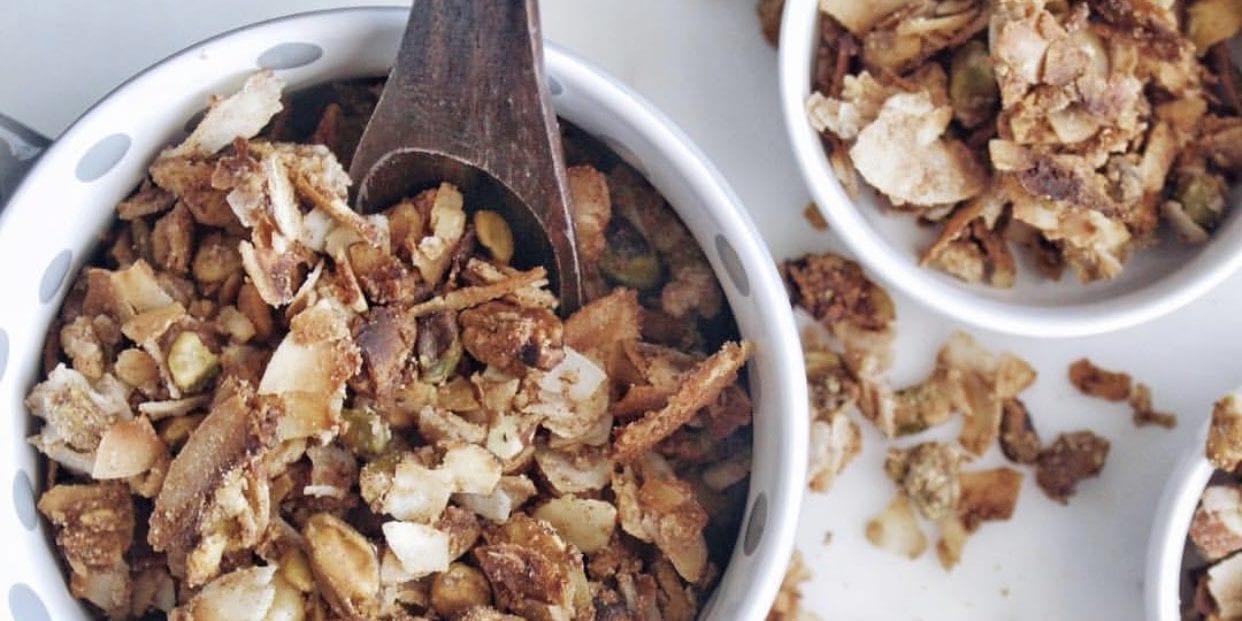
Seeds are also a healthy, convenient, and crunchy keto snack you can try raw, roasted, salted, or however you like them! Flax, pumpkin, and chia seeds are just some of the seeds that are high in magnesium. Pumpkin seeds have a whopping 150mg of magnesium in a 1-ounce (28-gram) serving, which is 37% of the RDI.
Seeds are also rich in monounsaturated fat and omega-3 fatty acids, iron, antioxidants, and fiber. Almost all the carbs in seeds come from fiber [16] [17] Flaxseeds have been shown to reduce cholesterol, and they might also be helpful against breast cancer [18] [19].
Try these keto recipes starring seeds:

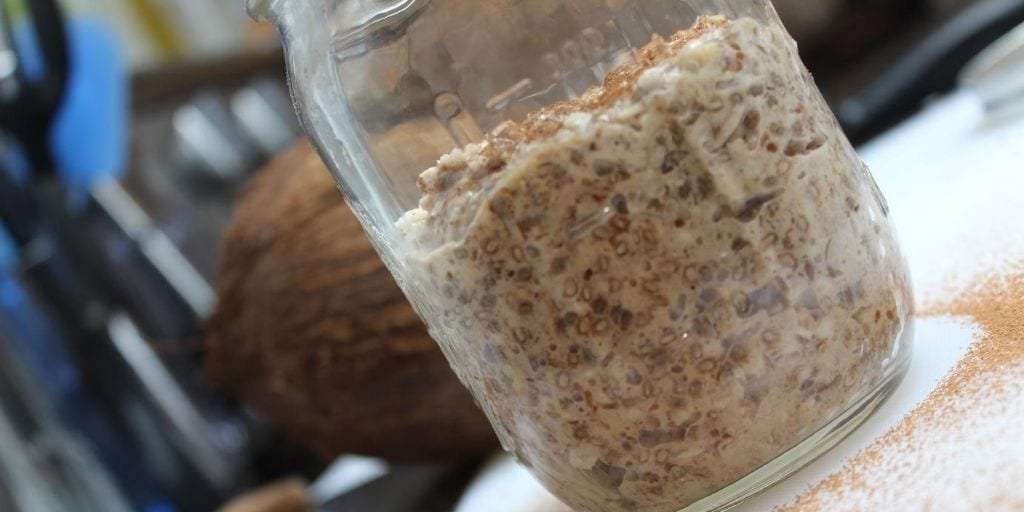


4. Fatty Fish
Fatty fish isn’t just packed with healthy omega-3 fats; many types of fish like salmon, mackerel, and halibut, are high in magnesium. Half a fillet of salmon (178 grams) packs 53mg of magnesium, which is 13% of the RDI. You also get 39 grams of high-quality protein [20].
Fish is rich in potassium, selenium, B vitamins, and more! In fact, a high intake of fatty fish has been associated with a reduced risk of several chronic conditions, including heart disease. These health advantages are typically attributed to the omega-3 fatty acids [21] [22] [23]. Try these magnesium-rich fish recipes:
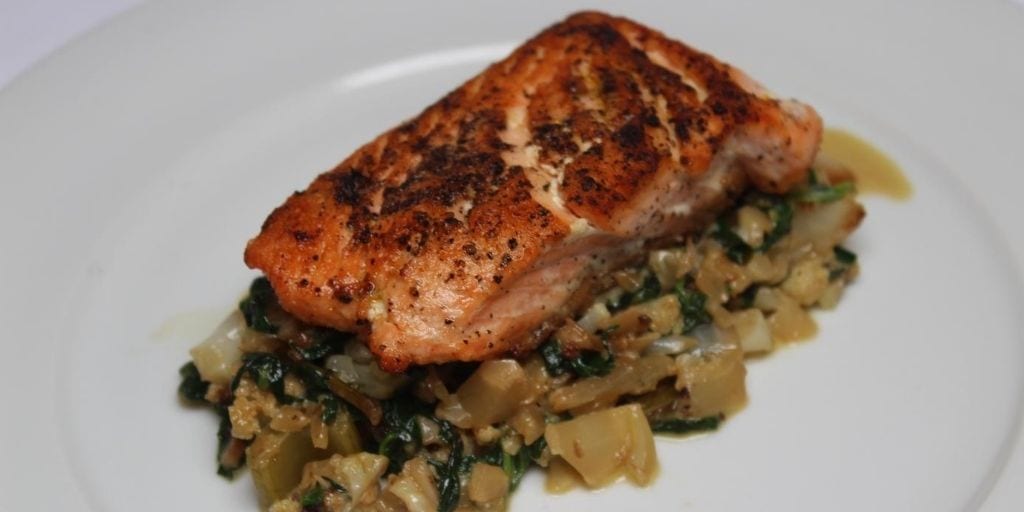


5. Leafy Greens
Leafy greens like kale, spinach, turnip greens, mustard greens, and collard greens are loaded with magnesium. For instance, 1-cup of cooked spinach has around 157mg of magnesium, which is an impressive 39% of the RDI [24].
Leafy greens are also a great source of several nutrients, such as iron, manganese, and vitamins K, C, and A. Leafy greens contain beneficial plant compounds that help protect your cells from damage and might reduce cancer risk [25] [26].
Enjoy these keto recipes featuring flavorful leafy greens:
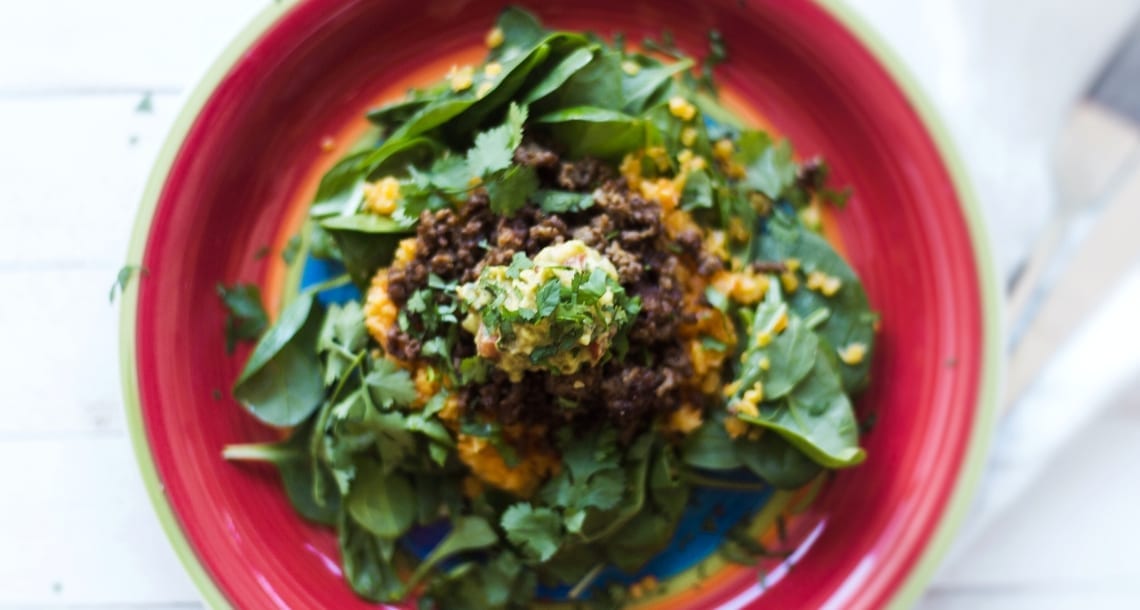


Adding these magnesium rich foods into your diet is a long term solution to try and hit your daily needs. However, if you still struggle to get enough magnesium into your diet short term, try supplementing with 400 mg- 420 mg of magnesium.
References
De Baaij, J. H. F., Hoenderop, J. G. J., & Bindels, R. J. M. (2015). Magnesium in man: Implications for health and disease. Physiological Reviews, 95(1), 1-46.
Self Nutrition Data. Candies, Chocolate, Dark, 70-85% Cocoa Solids.
Tzounis, X., Rodriguez-Mateos, A., Vulevic, J., Gibson, G. R., Uribe, C. K., & Spencer, J. P. E. (2011). Prebiotic evaluation of cocoa-derived flavanols in healthy humans by using a randomized, controlled, double-blind, crossover intervention study. American Journal of Clinical Nutrition, 93(1), 62-72.
Crozier, S. J., Preston, A. G., Hurst, J. W., Payne, M. J., Mann, J., Hainly, L., & Miller, D. L. (2011). Cacao seeds are a ‘Super Fruit’: A comparative analysis of various fruit powders and products. Chemistry Central Journal.
Fisher, N. D. L., & Hollenberg, N. K. (2006). Aging and vascular responses to flavanol-rich cocoa. Journal of Hypertension, 24(8), 1575-1580.
Wan, Y., Vinson, J. A., Etherton, T. D., Proch, J., Lazarus, S. A., & Kris-Etherton, P. M. (2001). Effects of cocoa powder and dark chocolate on LDL oxidative susceptibility and prostaglandin concentrations in humans. American Journal of Clinical Nutrition, 74(5), 596-602.
Self Nutrition Data. Avocados, Raw, All Commercial Varieties.
Li, Z., Wong, A., Henning, S. M., Zhang, Y., Jones, A., Zerlin, A., Thames, G., Bowerman, S., Tseng, C-H., & Heber, D. (2013). Hass avocado modulates postprandial vascular reactivity and postprandial inflammatory responses to a hamburger meal in healthy volunteers. Food and Function, 4(3), 384-391.
Kopec, R. E., Cooperstone, J. L., Schweiggert, R. M., Young, G. S., Harrison, E. H., Francis, D. M., Clinton, S. K., & Schwartz, S. J. (2014). Avocado consumption enhances human postprandial provitamin A absorption and conversion from a novel high-?-carotene tomato sauce and from carrots. Journal of Nutrition, 144(8), 1158-1166.
Wien, M., Haddad, E., Oda, K., & Sabate, J. (2013). A randomized 3×2 crossover study to evaluate the effect of Hass avocado intake on post-ingestive satiety, glucose, and insulin levels, and subsequent energy intake in overweight adults. Nutrition Journal.
Self Nutrition Data. Nuts, Almonds.
Jenkins, D. J. A., Kendall, C. W. C., Banach, M. S., Srichaikul, K., Vidgen, E., Mitchell, S., Parker, T., Nishi, S., Bashyam, B., De Souza, R., Ireland, C., & Josse, R. G. (2011). Nuts as a replacement for carbohydrates in the diabetic diet. Diabetes Care, 34(8), 1706-1711.
Colpo, E., Vilanova, C. D. D. A., Reetz, L. G. B., Duarte, M. M. M. F., Farias, I. L. G., Meinerz, D. F., Mariano, D. O. C., Vendrusculo, R. G., Boligon, A. A., Corte, C. L. D., Wagner, R., Athayde, M. L., & De Rocha, J. B. T. (2014). Brazilian nut consumption by healthy volunteers improves inflammatory parameters. Nutrition, 30(4), 459-465.
Casas, R., Sacanella, E., Urpi-Sarda, M., Chiva-Blanch, G., Ros, E., Martinez-Gonzalez, M-A., Covas, M-I., Lamuela-Raventos, R. M., Salas-Salvado, J., Fiol, M., Aros, F., & Estruch, R. (2014). The effects of the Mediterranean diet on biomarkers of vascular wall inflammation and plaque vulnerability in subjects with high risk for cardiovascular disease: A randomized trial. PLoS One, 9(6), e100084.
Tan, S. Y., & Mattes, R. D. (2013). Appetitive, dietary, and health effects of almonds consumed with meals or as snacks: A randomized, controlled trial. European Journal of Clinical Nutrition, 67(11), 1205-1214.
Self Nutrition Data. Seeds, Pumpkin and Squash Seed Kernels, Dried.
Martinez-Cruz, O., & Paredes-Lopez, O. (2014). Phytochemical profile and nutraceutical potential of chia seeds (Salvia hispanica L.) by ultra high performance liquid chromatography. Journal of Chromatography.
Edel, A. L., Rodriguez-Levya, D., Maddaford, T. G., Caligiuri, S. P., Austria, J. A., Weighell, W., Guzman, R., Aliani, M., & Pierce, G. N. (2015). Dietary flaxseed independently lowers circulating cholesterol and lowers it beyond the effects of cholesterol-lowering medications alone in patients with peripheral artery disease. Journal of Nutrition, 145(4), 749-757.
Thompson, L. U., Chen, J. M., Li, T., Strasser-Weippl, K., & Goss, P. E. (2005). Dietary flaxseed alters tumor biological markers in postmenopausal breast cancer. Clinical Cancer Research, 11(10), 3828-3835.
Self Nutrition Data. Fish, Salmon, Atlantic, Farmed, Cooked.
Zheng, J., Huang, T., Yu, Y., Hu, X., Yang, B., & Li, D. (2012). Fish consumption and CHD mortality: An updated meta-analysis of seventeen cohort studies.Public Health Nutrition, 15(4), 725-737.
Virtanen, J. K., Mozaffarian, D., Chiuve, S. E., & Rimm, E. B. (2008). Fish consumption and risk of major chronic disease in men. American Journal of Clinical Nutrition, 88(6), 1618-1625.
Zhang, J., Wang, C., Li, L., Man, Q., Meng, L., Song, P., Froyland, L., & Du, Z-Y. (2012). Dietary inclusion of salmon, herring, and pompano as oily fish reduces CVD risk markers in dyslipidaemic middle-aged and elderly Chinese women. British Journal of Nutrition, 108(8), 1455-1465.
Self Nutrition Data. Spinach, Cooked, Boiled, Drained, Without Salt.
Olsen, H., Aaby, K., Borge, G. I. A. (2009). Characterization and quantification of flavonoids and hydrozycinnamic acids in curly kale (Brassica oleracea L. Convar. Acephala Var. sabellica) by HPLC-DAD-ESI-MSn. Journal of Agricultural and Food Chemistry, 57(7), 2816-2825.
Moser, B., Szekeres, T., Bieglmayer, C., Wagner, K-H., Misik, M., Kundi, M., Zakerska, O., Nersesyan, A., Kager, N., Zahrl, J., Hoelzl, C., Ehrlich, V., & Knasmueller, S. (2011). Impact of spinach consumption on DNA stability in peripheral lymphocytes and on biochemical blood parameters: Results of a human intervention trial. European Journal of Nutrition, 50(7), 587-594.









